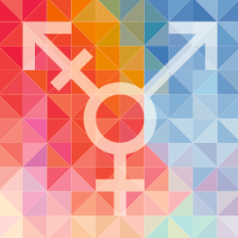[This article written by Cheryl Katon of TCNE’s Board of Directors] Part of the human experience is challenging yourself, reflecting on mistakes, taking pride in success, learning from both and growing to new places because of the experiences. As babies it is how we learn to walk and talk. As children it is how we learn to treat others and what interests us. As teens it is how we learn to define ourselves. It is a complicated process that we exercise during those formative years. We exercise those lessons in public. As babies, we don’t understand the social norms, so we don’t experience embarrassment – as babies it’s ok to throw up on ourselves and others, cry loudly, and poop our pants.
As we assimilate to society and we define ourselves by our values and actions, we create a comfort zone for ourselves. This comfort zone works against the natural learning process. The comfort zone works against personal growth. When we talk about a “safe space” for dialogue and an exchange of ideas, we are giving people a safe space to learn and grow. The type of safe space they had when they were babies. These safe space expressions are not just for teens who are actively discovering who they are, they are required for anyone who seeks to exit the comfort zone and explore new ideas.
The older we get the more difficult it is to create or embrace safe spaces to learn, because we feel social pressure to “already know about ourselves.” Trans people of all ages make some folks uncomfortable because we are compelled to learn and grow, and we must practice in public. We do this learning well beyond the socially acceptable time allotted to learn our gender role. Sadly, many folks feel unusual or uncomfortable about anyone who is willing to admit they still have stuff to learn AFTER the pre-approved window to learn. A 20 year old who doesn’t have a driver’s license, a 40 year old who welcomes a dramatic career change, and we won’t even get into folks who have various invisible disabilities that create a similar dynamic. This is why folks who are willing to learn ANYTHING later in life are often described as courageous.
Volunteering is a great way that TCNE and First Event creates a safe space for trans people to exercise those muscles required to learn and grow. For folks trying to figure out or find balance along their gender journey, the social fear can be crippling. That crippling sensation causes so many trans folks to stay in the closet, or limit their public exposure. Those limitations mean that they can’t experience a full and rich experience. If folks can’t have a full experience, they can’t fully learn about themselves.
As one of the primary volunteer coordinators for TCNE and First Event over the past several years I’ve watched people come to conclusions about themselves that include increased comfort in being out without transitioning, folks who transition, folks who better articulate their gender journey with their spouse or kids or parents, folks who find comfort with identities like gender fluid or non-binary, folks who can more clearly express career objectives and so much more. Of course these milestone discoveries are due to their hard work. Volunteering in this safe space however, gives them added tools and experiences to contextualize their journey.
Over the next few weeks we’ll start sharing volunteer opportunities for TCNE, Volunteering and Visibility activities, Peer support group leadership, and First Event positions. If you are looking for a safe space to exercise your thinking about your gender journey, and give back to the community, I encourage you to join us!

I really like what Cheryl had to say In all my years going to events, it has been a mission for me with total joy. The rewards are all unique, and I will continue to help out to you and all the others I encounter. Stay well keep up the great work.
Thank you and you too!!